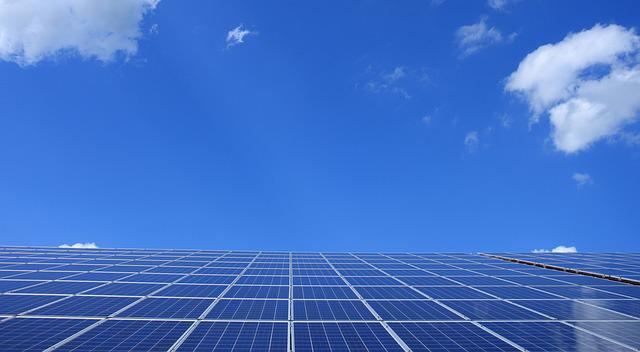Table of Contents
ToggleHave you been wondering how to reduce your electricity bills without spending a fortune on solar panels?
Perhaps you have been considering investing in second hand solar panels?
But are second hand solar panels worth it?
Solar panel efficiency loss
Like most technologies, all solar panels will lose their efficiency naturally over time, primarily because of normal wear and tear.
Four main natural causes for normal degradation are thermal cycling, damp heat, exposure to UV rays, and adverse weather conditions. For example, hail can crack panels, and humidity can cause corrosion leading to panel degradation.
Generally, the efficiency of solar panels can be expected to degrade by 0.5% to 3% a year.
Can solar panels be reused?
Yes, solar panels can be reused because they are built to last more than 25 years. So, even with a 0.5% efficiency loss per year, a solar panel can still functioning at 87% after 25 years.
Most used solar panels for resale are between 1 and 9 years old. This means that they still function at a high-efficiency rate. Therefore, these solar panels can be reused until they finally stop functioning.
Why are second hand solar panels in demand?
These factors drive the demand for second hand solar panels.
First, consumers are looking for ways to be self-sufficient, where grid infrastructure is vulnerable in areas prone to natural disasters like wildfires, hurricanes, snowstorms, etc.
Second, consumers with limited budgets are hunting for affordable alternatives to brand new panels.
Finally, international and national threats, like covid, create surges in demand for off-grid energy preparedness.


- Photo by Vivint Solar
Is it worth buying second hand solar panels?
While there is a market for used solar panels, are they really worth it? Are second hand solar panels worth the price, or should consumers just buy brand new? Let’s have a look.
Disadvantages of second hand solar panels
No warranty
Unlike new solar panels, second-hand solar panels do not come with a manufacturer’s warranty.
With brand new panels, the manufacturer is obligated to replace or repair your solar panel for free if there are issues within a certain time frame.
But in the case of second hand solar panels, the manufacturer or the original owners have no obligation to repair or replace faulty panels.
Installation Difficulties
It may be difficult to locate an installer willing to install used solar panels. Most are reluctant because they don’t want to take responsibility for any faults.
No government incentives
New solar panels on the market qualify for federal and/or state government rebates and incentives in certain countries. These incentives offset the upfront costs of the panels and also reduce the total cost of ownership for many years to come.
However, if you purchase second-hand solar panels, you are not eligible for these incentives. Why? Because the first owner has already claimed any existing rebates or incentives they were entitled.
Old solar tech
The rapid advancement of solar technology in the past 10 years has produced upgraded, more advanced, more efficient and higher performing panels every year.
Thus, the cost of solar panels has dropped over the years. As a result, many households are now able to afford investing in new, highly efficient smart technology solar panels, which generate more energy, lasts longer and reduces energy bills more than older models would.
Loss of efficiency and quality
The efficiency of a used solar panel is lower than a new one. The impurities that creep into the crystals of the photovoltaic material in the solar panels are the cause of quality loss too.
As mentioned above, solar panels lose 0.5% efficiency per year. So sooner or later, the panel will become completely dysfunctional.
Time-consuming research
If you are not an expert in the area, researching second hand solar panel technologies, manufacturers, types of panels, sizing, and installation methods can be very time-consuming and overwhelming.
You may find all sorts of confusing information on the internet, not to mention the huge task of checking whether the panels or inverter comply with your current system.
In addition, you’ll need to learn to install the panels yourself or locate someone who can do it.
How to test second hand solar panels?
If you’re planning on buying used solar panels, test them before making the purchase. To test if a second hand solar panel works, you will need good, clear skies and a volt/amp meter. If it passes the two tests below, it is good.
First, check if the panel generates the voltage listed on the original sticker of the product. You can accomplish this with a simple voltage test. If the sticker is missing, check for the information online. Then, compare its current efficiency rate against its new-state rate and decide whether the offer price is fair.
The second test is to gauge the solar panel efficiency in DC amps. Configure your meter for DC, then expose the panel to the sun for at least 5 minutes. You should get at least 80% of the rating on the sticker.


- Image by andreas160578 from Pixabay
Where to buy second hand solar panels?
Second hand solar panels can be purchased from the secondary solar market and online marketplaces such as eBay and Amazon.
Only buy from sellers with established credibility. Check if the panel has been tested for general inspection, electrical shock hazard, fire hazard, mechanical stress and environmental stress. Remember to read all the terms and conditions before buying.
Conclusion
Used solar panels are ideal for small projects where you might want to keep costs low. Many off-gridders also favour used solar panels because of the cost.
Now that all the information is laid out in front of you, you can decide whether a second hand solar panel is the right choice for you! Check out A Buyer’s Guide For Used Solar Panels for tips on buying second hand solar panels.
For more on solar power and solar panels, head to Just Solar.com.





